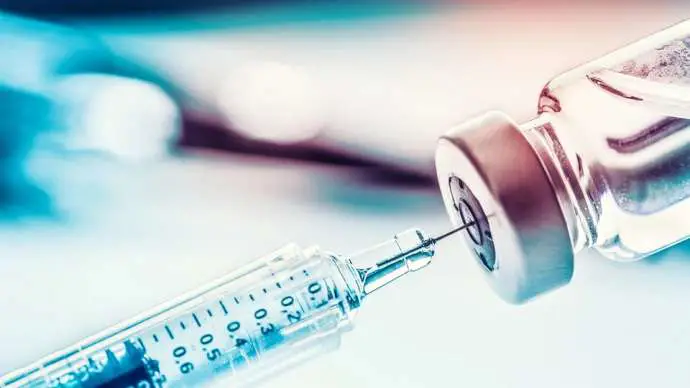STA, 15 February 2021 - The National Institute of Public Health (NIJZ) expects new batches of Covid-19 vaccines this week, consisting of 21,060 doses of Pfizer/BioNTech vaccine, and 16,800 of the AstraZeneca vaccine. The national vaccination strategy has been updated with regard to setting the priority groups, the NIJZ told the STA.
The priority groups for vaccination are medical staff, employees and residents of care homes and day centres for people with disabilities, people aged over 80, those over 75 and then those over 70 and particularly vulnerable patients with chronic disease regardless of their age.
After that the vaccine will be available for those over 65 and chronic patients older than 60, followed by employees in key services and the rest of the population, suggests the strategy obtained by the STA.
The list of particularly vulnerable chronic patients includes people with organ transplants, cancer, severe lung diseases, rare diseases that increase the risk of infection, people treated with immunosuppressives, those with conditions that increase the risk of infection, adults with Down syndrome, adults on dialysis and those with level five chronic kidney disease.
The NIJZ advisory body has recommended the AstraZeneca vaccine for people aged under 65 but also for the vaccination of bedridden persons at their homes, as unlike the mRNA vaccines it is more stable and thus easier to transport.
Currently, three Covid-19 vaccines are registered for use in Slovenia but given that their quantities are very limited, people cannot choose which one their will be inoculated with.
The mRNK vaccines of Pfizer/BioNTech and Moderna are currently used for the vaccination of medical staff older than 65, and for people over 80. After that citizens older then 75 will be vaccinated with them and then those over 70 and particularly vulnerable chronic patients regardless of their age, and then those over 65.
The AstraZeneca vaccine will first be administered to health staff aged between 18 and 64, and employees and residents of care homes and day centres for people or youth with disabilities, and employees at prisons and other similar institutions of the same age.
After that, employees and students of special schools will receive the vaccine, along with particularly vulnerable chronic patients aged 18-64 and possibly also older with or without chronic disease if they express the desire to be vaccinated as soon as possible and if this is line with their doctor's orders.
After that patients aged 18-64 will be vaccinated, healthy persons aged 60-65, emergency services and the rest of the population, the strategy says.






